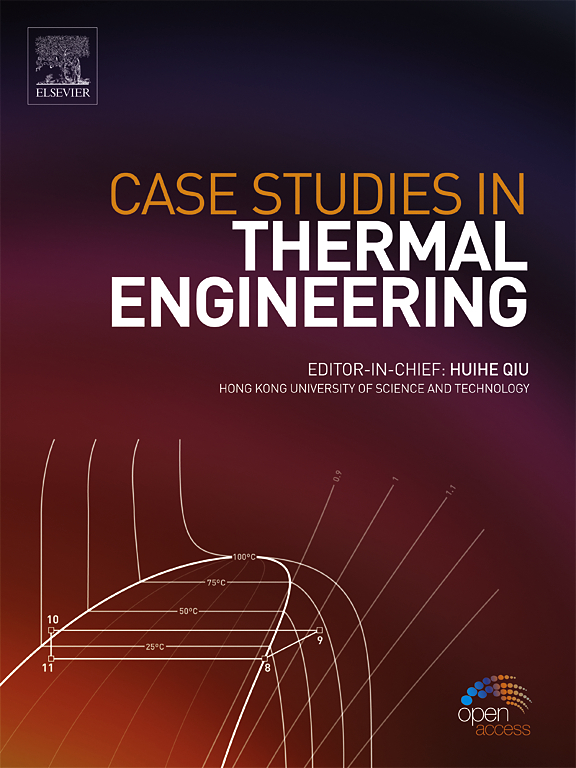3D package thermal analysis and thermal optimization
IF 6.4
2区 工程技术
Q1 THERMODYNAMICS
引用次数: 0
Abstract
3D packaging mainly uses TSVs (Through Silicon via) to vertically interconnect multiple chips, achieving the purpose of signal transmission and electrical connection. As a popular advanced packaging method, its research is of great significance. Although stacked chips can achieve stronger performance in smaller spaces, they can also cause a series of reliability issues, among which thermal stress and warping due to differences in the thermal expansion coefficients of materials can even lead to chip failure. Therefore, it is highly valuable to simulate and analyze the entire 3D packaging model.
In this study, the thermal stress and deformation of the whole three-dimensional package model were simulated by finite element analysis. The results showed that there were significant stress and deformation effects at the joint of the TSV structure at normal temperature, and the stress and deformation reached 209.99 MPa and 0.0018519 mm, respectively. After that, the temperature of the double-sided package system containing 3D package under electrothermal coupling conditions was optimized by heat dissipation design, which verified the ‘quantity first’ scheme of heat dissipation fins and reduced the temperature by 40 %.
三维封装热分析和热优化
三维封装主要利用 TSV(Through Silicon via,硅通孔)将多个芯片垂直互连,达到信号传输和电气连接的目的。作为一种流行的先进封装方法,其研究意义重大。虽然堆叠芯片可以在更小的空间内实现更强的性能,但同时也会带来一系列可靠性问题,其中材料热膨胀系数差异导致的热应力和翘曲甚至会导致芯片失效。因此,对整个三维封装模型进行仿真分析具有很高的价值。本研究采用有限元分析方法对整个三维封装模型的热应力和变形进行了仿真。结果表明,在常温下,TSV 结构接头处存在明显的应力和变形效应,应力和变形分别达到 209.99 MPa 和 0.0018519 mm。随后,通过散热设计优化了包含三维封装的双面封装系统在电热耦合条件下的温度,验证了散热鳍片的 "数量优先 "方案,使温度降低了 40%。
本文章由计算机程序翻译,如有差异,请以英文原文为准。
求助全文
约1分钟内获得全文
求助全文
来源期刊

Case Studies in Thermal Engineering
Chemical Engineering-Fluid Flow and Transfer Processes
CiteScore
8.60
自引率
11.80%
发文量
812
审稿时长
76 days
期刊介绍:
Case Studies in Thermal Engineering provides a forum for the rapid publication of short, structured Case Studies in Thermal Engineering and related Short Communications. It provides an essential compendium of case studies for researchers and practitioners in the field of thermal engineering and others who are interested in aspects of thermal engineering cases that could affect other engineering processes. The journal not only publishes new and novel case studies, but also provides a forum for the publication of high quality descriptions of classic thermal engineering problems. The scope of the journal includes case studies of thermal engineering problems in components, devices and systems using existing experimental and numerical techniques in the areas of mechanical, aerospace, chemical, medical, thermal management for electronics, heat exchangers, regeneration, solar thermal energy, thermal storage, building energy conservation, and power generation. Case studies of thermal problems in other areas will also be considered.
 求助内容:
求助内容: 应助结果提醒方式:
应助结果提醒方式:


